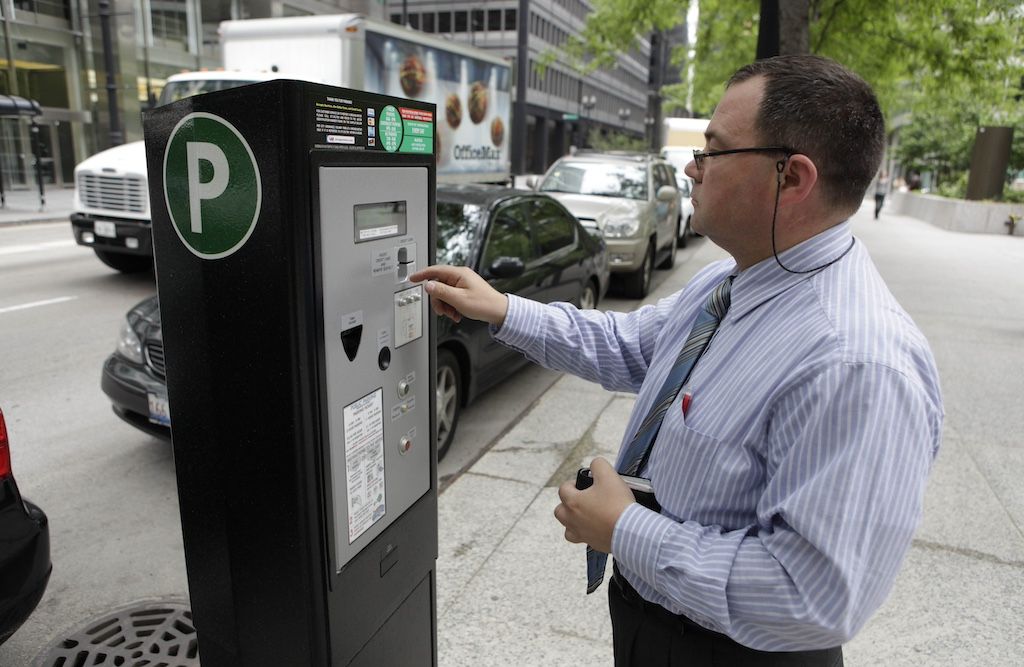
When you park your car in Chicago and pay the meter, the payment doesn’t go to the city like most American cities. Instead, a company partly owned by foreign investors is pocketing the revenue.
In the dire straits of the 2008 financial crisis, like many people, the city of Chicago had fallen on hard times.
Strapped for cash, then-Mayor Richard M. Daley began to think of ways for the city to privatize its assets. The seven-term mayor attempted to sell Midway International Airport in September 2008 in what would have been the first commercial airport in the United States to become privatized. Investors from New York, Boston, and Canada offered to pay $2.5 billion to privatize the city’s South Side airport in a 99-year lease.
The plan fell through. But Chicago’s 36,000 parking meters seemed like a good idea.
How did Chicago get into this contract?
“People looking for fast cash usually get a bad deal,” Clint Krislov, the director of IIT Chicago-Kent’s Center for Open Government Law Clinic, told the Chicago Sun-Times.
At the time, Daley said the deal was “the best thing that has happened for us in regards to getting out of this business.” Chicago Parking Meters LLC was formed, a company that is mostly owned by Morgan Stanley but has a Saudi oil company as well as some German companies involved in the investment.
The city received $1.16 billion in the sale. Within three years, Chicago spent all of the proceeds from the sale and started increasing its fares even faster.

Before 2008, parking in Chicago cost 25 cents per hour for many decades. By 2009, rates had quadrupled to $1 per hour and have only increased since, with some street parking in downtown Chicago costing up to $7 per hour. As of 2023, 80% of Chicago’s parking meters cost $2.50.
Chicago Parking Meters LLC has already been raking in the profits, amounting to large amounts of cash Chicago is missing out on. According to the Chicago Sun-Times, the company took in $91.6 million alone in 2020 and $138 million in 2019.
As of 2023, investors of CPM LLC have regained their entire investment and profited $500 million total, although 60 years remain in the contract. The contract won’t end until 2084 and has held up against numerous legal challenges.
Can Chicago get out of it?
It’s unlikely Chicago will be able to get out of the contract. The deal has survived three legal challenges, including the Supreme Court’s recent refusal to hear the case.
In 2021, three Chicago residents sued Chicago Parking Meter LLC in Northern Illinois District Court. The plaintiffs argued the investment group had an “unlawful monopoly” on parking in Chicago, according to Courthouse News.
“CPM has obtained an unlawful monopoly for an unreasonable 75-year period over the lease of parking spaces in a fixed number and at fixed rates and without active regulation by the City, without regard to consumer preferences for alternative forms of transportation,” the complaint from 2021 read.
The complaint failed, as did the others. U.S. District Judge Matthew Kennelly did not counter the idea that CPM had a monopoly on the parking meters, but he said Chicago was within its rights to sell the parking meters.
“Nothing in the text of the [Illinois Municipal Code] suggests that the city is required to own and operate parking meters on public streets,” the district judge wrote.
The plaintiffs appealed the ruling to the U.S. Court of Appeals for the 7th Circuit, where U.S. Circuit Judge Diane Wood noted that there were other parking options in the city, including private garages.
“Everyone has to use the Chicago Parking Meters system sooner or later who has a car in the city of Chicago,” attorney Thomas Howard Geoghegan said in court on behalf of the plaintiffs. “This is a monopoly. It is a violation of the Sherman Act.”
“Is it your bottom line … just that unfortunately the city just cut a very bad deal for itself back when it decided to contract with CPM?” the circuit judge asked after further deliberation.
CLICK HERE TO READ MORE FROM THE WASHINGTON EXAMINER
The ruling from the district court was upheld in the 7th Circuit. They said while the deal “might have been foolish” or “short-sighted,” it was “not enough to state a claim for a violation of the antitrust laws.”
In 2023, the Supreme Court refused to hear an appeal of the ruling from the 7th Circuit. The high court did not give a reason for refusal and effectively ended Chicagoans’ chance of getting rid of the contract.
Scroll down to leave a comment:
[Fancy_Facebook_Comments]







